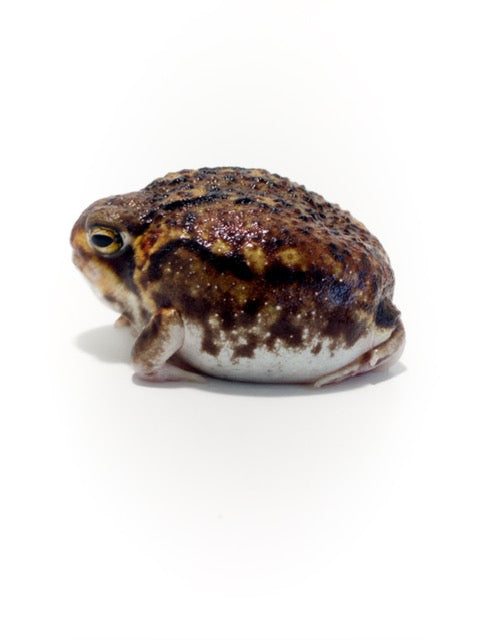Common Health And Wellness Issues in Reptiles: Symptoms and Solutions
In the intricate world of reptile treatment, recognizing the common health and wellness issues that may influence these one-of-a-kind animals is paramount in guaranteeing their wellness. From breathing infections that can silently hold to metabolic bone diseases that can disable, reptiles are vulnerable to a variety of conditions that require eager observation and prompt intervention. Whether it's coming to grips with parasitical infestations, browsing dehydration concerns, or attending to skin conditions that materialize in subtle ways, being in harmony with the signs and geared up with the expertise of effective services is vital for any type of reptile proprietor. By diving further right into the subtleties of these health problems and discovering the functional remedies offered, one can safeguard the health and wellness and vitality of these remarkable animals.
Respiratory Infections
Respiratory infections in reptiles can considerably influence their total health and require prompt interest from seasoned veterinarians. In reptiles, respiratory infections can be specifically challenging to identify and deal with due to their special anatomy and physiology.
Therapy for respiratory system infections in reptiles usually includes a combination of supportive care, such as maintaining appropriate moisture degrees and temperature level gradients in the unit, as well as targeted medication to attend to the specific microorganism in charge of the infection. It is important for reptile owners to check their pets carefully for any type of signs of respiratory system distress and look for vet treatment at the earliest indicator of an issue. With prompt treatment and appropriate therapy, lots of reptiles can recuperate fully from respiratory system infections and return to regular tasks.

Metabolic Bone Condition
What variables contribute to the growth of Metabolic Bone Disease in reptiles?
Metabolic Bone Disease (MBD) in reptiles is largely triggered by an absence of correct calcium, phosphorus, and vitamin D3 levels in their diet. Additionally, inadequate exposure to UVB light protects against reptiles from synthesizing vitamin D3, which is essential for calcium absorption and bone wellness.
Inadequate humidity levels can additionally impact a reptile's capability to metabolize calcium effectively. Regular vet check-ups, correct husbandry techniques, and a balanced diet are vital to stop Metabolic Bone Condition in reptiles.
Parasitic Invasions
Parasitical invasions pose a significant health and wellness danger to reptiles, influencing their general health and needing prompt veterinary focus. Reptiles can be affected by various parasites, including termites, ticks, inner worms, and protozoa. These parasites can cause a range of signs, such as weight management, lethargy, skin irritability, diarrhea, and even fatality if left untreated.
One common bloodsucker discovered in reptiles is the mite, which can create skin irritability, anxiety, and anemia. Ticks are one more exterior bloodsucker that can trigger and transfer diseases discomfort to the reptile. Internal parasites like worms and protozoa can result in digestion problems, poor nutrition, and damage the reptile's immune system.
To identify a parasitic infestation, a veterinarian might execute fecal tests, skin scrapings, or blood examinations. Treatment typically entails deworming medications, antiparasitic baths, or in extreme cases, a hospital stay. Preventative procedures such as regular veterinary check-ups, correct hygiene, and quarantine procedures for brand-new reptiles can help decrease the risk of parasitic problems and make certain the well-being of reptile animals.
Dehydration and Hydration Issues
Dehydration in reptiles can significantly affect their health and health, necessitating prompt treatment and ideal hydration management. Reptiles are susceptible to dehydration due to numerous factors such as poor water intake, high environmental temperature levels, and specific health conditions. Signs and symptoms of dehydration in reptiles include sunken eyes, sleepiness, loss of skin elasticity, link and reduced peeing. If left unattended, dehydration can bring about major health and wellness concerns and also be fatal to the reptile.
To prevent dehydration, reptile proprietors must make sure that their family pets have accessibility to tidy water at all times. The water dish should be huge sufficient for the reptile to take in if needed, especially for types that take in water via their skin. Furthermore, maintaining proper moisture degrees in the reptile's unit and supplying regular baths can assist protect against dehydration.
In cases of dehydration, it is crucial to seek veterinary treatment promptly. A veterinarian might carry out fluids either by mouth or through injections to rehydrate the reptile. It is necessary to resolve the underlying reason of dehydration to prevent reoccurrence and make certain the reptile's general well-being.
Skin Ailments

Final Thought

Respiratory system infections in reptiles can considerably influence their general health and wellness and need prompt attention from seasoned veterinarians (rain frog for sale). Preventative actions such as normal vet exams, correct hygiene, and quarantine procedures for brand-new reptiles can assist minimize the threat of parasitical invasions and make sure the well-being of reptile pet dogs
If left without treatment, dehydration can lead to serious health and wellness issues and even be fatal to the reptile.
Regularly examining your reptile for any type of modifications in skin look, texture, or shade can aid in very early detection and treatment of skin conditions, advertising the general health and well-being of your scaly friend. - rain frog for sale
In conclusion, reptiles are vulnerable to numerous health and wellness concerns such as respiratory system infections, metabolic bone illness, parasitic infestations, dehydration, and skin conditions.
Comments on “Seeking Rain Frog for Sale? Find Your Ideal Amphibian Companion Here!”